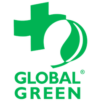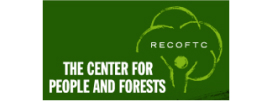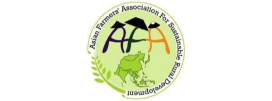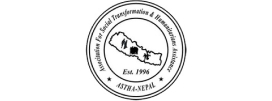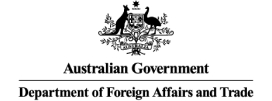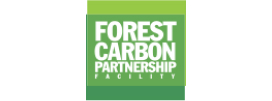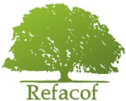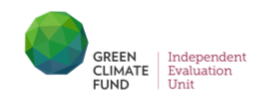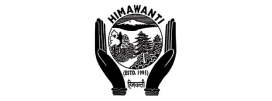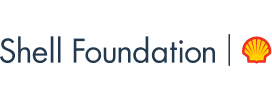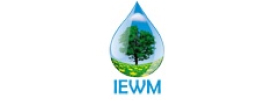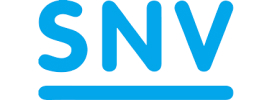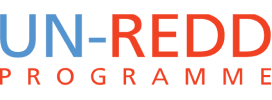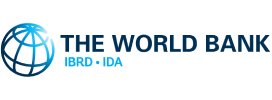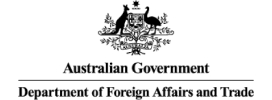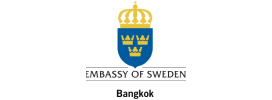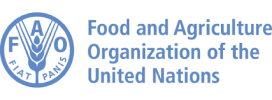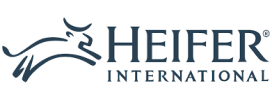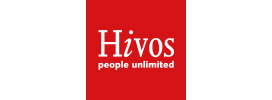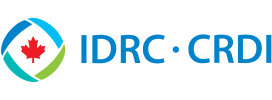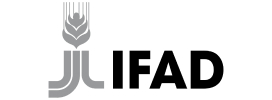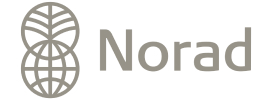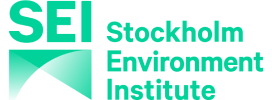WOCAN, established in 2004, is a women-led international membership network of women and men professionals and women’s associations.
WOCAN is a pioneer in gender equality and climate change discourse and interventions, an innovative thought leader, and has provided technical guidance to hundreds of organizations globally.
Become Part of a Growing Global Community
america
14%
- Canada (26)
- Puerto Rico (1)
- United States (180)
9%
- Armenia (3)
- Belgium (2)
- Bulgaria (1)
- Denmark (2)
- Finland (4)
- France (8)
- Georgia (2)
- Germany (12)
- Greece (2)
- Hungary (1)
- Ireland (2)
- Italy (28)
- Luxembourg (1)
- Malta (2)
- Moldova (1)
- Netherlands (10)
- Norway (3)
- Portugal (1)
- Serbia (1)
- Spain (4)
- Sweden (7)
- Switzerland (7)
- United Kingdom (25)
america
3%
- Barbados (1)
- Belize (1)
- Bolivia (2)
- Brazil (5)
- Chile (2)
- Colombia (6)
- Costa Rica (3)
- Dominican Republic (1)
- Ecuador (2)
- Guatemala (1)
- Guinea (1)
- Guyana (2)
- Honduras (1)
- Mexico (7)
- Nicaragua (1)
- Panama (1)
- Peru (11)
- Saint Lucia (1)
- Saint Vincent & the Grenadines (1)
- Trinidad and Tobago (2)
37%
- Benin (7)
- Botswana (2)
- Burkina Faso (8)
- Burundi (1)
- Cameroon (72)
- Central African Republic (1)
- Congo (Kinshasa) (6)
- Ethiopia (17)
- Gambia (4)
- Ghana (34)
- Ivory Coast (5)
- Kenya (115)
- Lesotho (4)
- Liberia (4)
- Madagascar (5)
- Malawi (26)
- Mali (1)
- Morocco (2)
- Mozambique (10)
- Namibia (2)
- Niger (1)
- Nigeria (108)
- Rwanda (4)
- Senegal (4)
- Sierra Leone (3)
- Somalia (3)
- South Africa (48)
- Sudan (10)
- Suriname (1)
- Tanzania (14)
- Togo (3)
- Tunisia (2)
- Uganda (38)
- Zambia (16)
- Zimbabwe (21)
35%
- Afghanistan (2)
- Bangladesh (25)
- Bhutan (7)
- Cambodia (12)
- China (6)
- Egypt (6)
- India (133)
- Indonesia (14)
- Iran (3)
- Iraq (1)
- Japan (1)
- Jordan (3)
- Laos (2)
- Lebanon (1)
- Malaysia (2)
- Maldives (8)
- Mongolia (2)
- Myanmar (10)
- Nepal (154)
- Pakistan (33)
- Philippines (25)
- Russia (3)
- Singapore (3)
- Sri Lanka (11)
- Syria (2)
- Taiwan (2)
- Thailand (20)
- Turkey (3)
- United Arab Emirates (1)
- Vietnam (9)
- Yemen (2)
2%
- Fiji (1)
- Marshall Islands (1)
- Nauru (1)
- New Zealand (3)
- Papua New Guinea (3)
- Timor-Leste (1)


Revealing women’s potential with the W+ Standard
The W+ StandardTM, created by WOCAN, is the first women-specific standard that measures women’s empowerment in a transparent and quantifiable manner, gives a monetary value to results and creates a new channel to direct financial resources to women.
The W+ Standard is not subject to any exclusive arrangements with any project developer, funder, broker or financial intermediary.
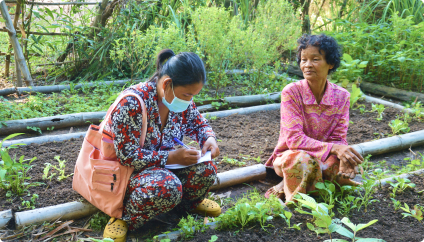

Time Savings
Time is a key factor for women’s empowerment. Many organizations support women’s entrepreneurship, education, maternal health, and food security in the developing world. But until women are freed from the necessary chores that consume so much time, they will make little progress in other areas.
Learn MoreIncome & Assets
In many regions of the world, women have very limited access to financial or technical assets. Owning property (tools, livestock, land, jewelry), controlling money (having a personal bank account), and making independent decisions about resource use are important leverage points for empowerment.
Learn MoreEducation & Knowledge
The benefits of female education for women’s empowerment and gender equality are broadly recognized:
Learn MoreHealth
According to the UNICEF, 66% of the world’s work is done by women. This includes work inside the home as care-givers for children and seniors, paid and un-paid labor, food production (cultivating crops, collecting and storing harvests) and resource management (water and fuel).
Learn MoreFood Security
Improvements in Food Security are critical for women’s attainment of economic, social and health improvements. Women are often responsible for ensuring that their families are fed, yet they themselves may go without adequate nutrition.
Learn MoreLeadership
Within developing economies, women are still widely under-represented in decision-making at all levels, in the household, in businesses, and in the public sphere. Addressing these inequities through laws and public policy is a way of formalizing the goal of gender equality.
Learn MoreCourses & Trainings
Gender Integrated Planning (5 days)
Gender-integrated planning requires conducting a gender analysis at each stage of the project cycle: situation analysis, setting objectives, developing activities and inputs, and establishing a monitoring and evaluation mechanism. This course provides participants with knowledge to not only use gender analysis tools to gather gender-sensitive data, but also use that data to plan in a systematic way.
The leadership training and mentorship spaces that WOCAN provides are top-notch. It offers both: conceptual richness and practical operational tools to understand and practice leadership.
Their frameworks and tools are handy to use and can be adapted for different types of audiences within the workspaces and beyond. I have become more self-aware and more self-equipped to create positive influences to position gender and social equity ideas within technical spaces.
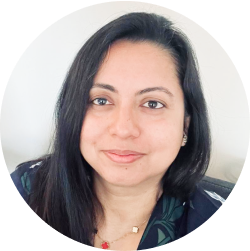
WOCAN’s training enabled me to become a more analytical leader and decision maker. It also helped me understand the multicultural differences and dynamics and as i work in an international organization, I am better able to understand people, look at the gestures, and generally improve on my communication.
From that connection I was also invited to sit in the advisory board of WOCAN’s W+ standard, where I am able to share the ground reality of the situation in Africa.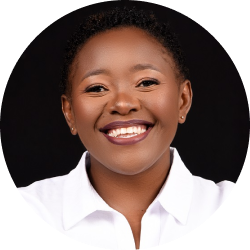
WOCAN has affected people on an individual level. Training participants will always tell us that WOCAN's training on relational leadership had a significant impact on their careers."
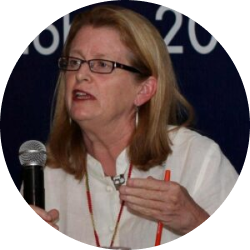
News VIEW ALL
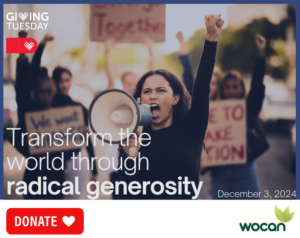
#GivingTuesday: Turn Your Frustration into Action
Let’s be honest—we’re angry and frustrated. And we bet you are too. The injustices are piling up, and those in

New York Climate Week 2024
Jeannette attending numerous events and sessions during the NY Climate Week from Sept. 22-26th. Here is her reflection: What a

UNFCCC’s Standing Committee on Finance Session on Gender and Climate Finance
Jeannette attended the UNFCCC’s Standing Committee on Finance session on Gender and Climate Finance in Arusha, Tanzania, on Sept. 2-3.
Featured podcasts VIEW ALL
Featured videos VIEW ALL
Featured publications VIEW ALL
Partners & Associates

